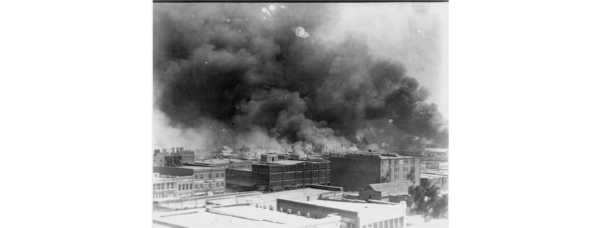Amid the revitalization of the organization districts in Tulsa, Oklahoma, Black entrepreneurs say they are staying shut out of acquiring loans, tax incentives and property in the most attractive locations 100 decades after the Tulsa Race Massacre.
About $42 million worth of tax incentives and loans intended to fund advancement in Tulsa’s historic Greenwood district has “largely benefited white-owned firms that received the vast majority of contracts to build beneficial parcels closest to downtown,” The Washington Article chronicled in a recent report.

Underneath Oklahoma law, the distribution of these incentives and financial loans is governed by a race-blind course of action. Metropolis officers have only recently turned their awareness to racial disparities in residence possession in the district. Despite the fact that officers approach to make much more land out there for redevelopment, the Black entrepreneurs have previously been shut out of the most attractive areas of Greenwood.
A century immediately after the 1921 massacre, a one a single-block business stretch south of the interstate stays Black-owned in a neighborhood in which Black People in america the moment thrived in an epicenter of Black business enterprise and lifestyle.
The violence started a century in the past when a Black teenager was accused of assaulting a white female in an elevator. When a group of Black gentlemen confirmed up at the courthouse to protect the teen, who was barricaded inside the creating with the sheriff, a struggle ensued with a mob of white adult males, and the melee became a conflagration of violence that carried to the Greenwood district.
Over an 18-hour period in 1921 concerning May 31 and June 1, white mobs attacked, burned and looted the flourishing business district that experienced turn into regarded as Black Wall Avenue. Hundreds of survivors were left homeless, and reports of what happened had been mainly silenced in media reports.
At least 300 men and women were being killed and much more than 800 had been wounded. Extra than 1,200 homes and 60 businesses ended up destroyed.
No Black home proprietors been given compensation, and city and condition officers did not dedicate revenue to rebuilding the community in the aftermath of the attack.
Tulsa native Male Troupe, who owns a espresso store in the Greenwood district, expressed disappointment about the disparities in land and property ownership in the region.
“It’s tough to tummy the notion that a museum and tourism will repair the problems of systemic racism. I came to just take back what is rightfully ours,” the 54-12 months-previous Troupe explained to the Article. “Who owns in there? It is not us. The only issue we possess are households. But major industrial structures, lands zoned for industrial growth? We really don’t have it.”
Troupe returned to the city just after a career in athletics consulting.
The Tulsa Improvement Authority and the condition college procedure very own a major portion of the 35 blocks of properties that comprise the Greenwood district.
By way of the revitalization approach more than the previous 10 many years, the Tulsa Advancement Authority has marketed a fifty percent-dozen prime parcels of land to personal builders.
Jot Hartley, normal counsel for the Tulsa Advancement Authority and just one of quite a few figures who spoke to the Publish about the revitalization, stated bias is not what keeps Black entrepreneurs from accessing the incentives made available by the town.
“Some of these tasks have been alternatively significant and needed capital that’s not ordinarily obtainable to just anyone unless of course they are now in the small business of producing large projects,” Hartley mentioned.
The authority mentioned it considers developers’ ties to the local community and experience with financing but does not give thing to consider to a person’s race.
Metropolis officials have been resistant to calls for reparations for descendants of victims of the massacre. The Tulsa Improvement Authority responded to a lawsuit filed by a 105-calendar year-old survivor and other descendants of massacre survivors trying to find redress for the violence with a motion to dismiss.
Kian Kamas, Tulsa’s main of economic advancement, claimed the metropolis ideas to produce 55 extra acres on smaller parcels north of the interstate and will advertise actively between Black builders.
“There is a fervent motivation to ensuring that Black-owned enterprises have an possibility to be a aspect of that revitalization,” Kamas said.
Troupe said an financial stimulus offer should really be employed to make it possible for Black entreprenuers to rebuild Black Wall Avenue. Parcels north of the interstate should be built available to Black organization owners “by deeding land, supplying grants and supplying reduced-fascination financial loans so the atrocities of the earlier could be tackled.”
“Historical Black Wall Street is long gone. It’s lifeless,” he mentioned. “But its spirit can be revived.”






